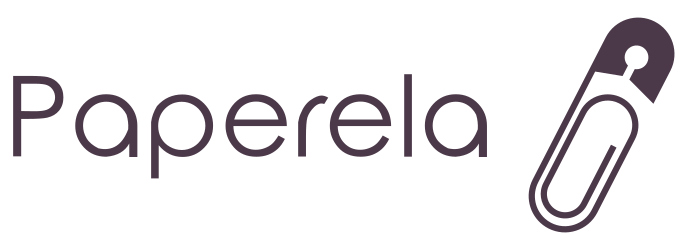
What Will Happen to Your Credit Score if You Do Not Manage Your Debt Wisely?

Have you ever wondered what will happen to your credit score if you do not manage your debt wisely? Managing debt is not just about keeping track of how much you owe but also about understanding the impact of your financial decisions on your credit score. A poor approach to debt management can decrease your credit score, which could create various financial difficulties. But what exactly happens when debt management falls by the wayside? This guide will explore how your financial actions influence your credit and provide effective strategies to ensure you maintain robust financial health.
What Will Happen to Your Credit Score if You Do Not Manage Your Debt Wisely?
When debt gets out of hand, particularly if you’re juggling high balances relative to your credit limits or if you’re frequently late on payments, it sends a clear distress signal to credit scoring models and lenders. This distress often translates into a lower credit score, complicating your ability to secure new credit and usually resulting in higher interest rates for any credit lines you do manage to obtain.

Mikhail Nilov | Pexels | When debt gets out of hand, it sends a clear distress signal to credit scoring models and lenders.
Contrary to what some might believe, simply using a credit card or taking out a loan isn’t necessarily detrimental. A balanced mix of revolving credit and installment loans can actually enhance your credit score, provided these are managed well. Adding a history of positive payments from these accounts to your credit report is a surefire way to bolster your credit.
However, any loans taken out must be within your capacity to repay on time every month. Keeping your credit utilization—the percentage of your revolving credit that you use—low is essential. Those with the highest credit scores often maintain a credit utilization rate of around 7%.
Good Debt vs. Bad Debt
Understanding what constitutes good and bad debt is pivotal in wisely managing your credit. Good debt typically includes loans that foster your long-term financial health, such as mortgages, car loans, and federal student loans. These debts can be instrumental in building wealth, ensuring reliable transportation, or enhancing your educational qualifications.
Conversely, bad debt often involves high interest rates and can spiral out of control if not managed carefully. Prime examples of bad debt include credit card debt, which can lead to high credit utilization rates, and extremely costly forms of borrowing like payday loans or car title loans, which can carry effective annual percentage rates (APRs) of 300% or more.
Effective Strategies for Managing Debt
Managing your debt effectively doesn’t necessarily mean you’ll lower your credit score; quite the opposite. Prudent use of a credit card and consistent payments towards installment loans can actually strengthen your credit. Here are a few strategies to ensure your debt management works in your favor:
Set Up Autopay
Set up autopay for all your credit and loan accounts to ensure you’re making all your payments on time. For credit cards, it’s wise to set up autopay to cover the full balance. Just make sure there are sufficient funds in your linked bank account to cover the payments without risking an overdraft.

Karolina Grabowska | Pexels | Set up autopay for all your credit and loan accounts to ensure you’re making all your payments on time.
Pay Off Credit Cards Each Month
To prevent your credit card debt from spiraling, aim to use less than 30% of your credit limit at any given time—though aiming for even less is ideal. By paying off the entire balance every billing cycle, you avoid carrying over debt from month to month, thereby dodging accruing interest and growing balances.
Seek Help Before You Miss a Payment
Life can be unpredictable, and financial fluctuations are normal. If you foresee difficulty in making timely payments, proactive communication with your lenders or credit card issuers can prevent negative marks on your credit score. Options such as mortgage forbearance or hardship plans for credit card debts can provide temporary relief.

Sora Shimazaki | Pexels | If you foresee difficulty in making timely payments communicate with your credit card issuers to prevent negative marks on your credit score.
How to Improve Your Credit Score
Improving your credit score is achievable through a few deliberate actions:
- Apply for a Secured Credit Card: This type of card requires a refundable security deposit and functions much like a standard credit card, helping you build or rebuild your credit responsibly.
- Apply for a Credit-Builder Loan: This loan type helps you build credit as you make payments, with the balance minus fees and interest typically available at the end of the term.
- Keep Your Oldest Credit Accounts Open: The age of your credit accounts can positively impact your score. Instead of closing old accounts, consider using them for small, recurring purchases.
- Limit New Credit Applications: Apply for new credit only as needed. While secured cards and credit-builder loans can be beneficial, taking on excessive credit can lead to missed payments and negatively affect your score.
Managing your debt with strategic foresight is essential for maintaining good credit. By keeping your credit card balances low, paying off your full balance monthly, and only taking out loans you need and can repay, you can ensure that your debt works for you, not against you.
More in Financial Planning
-
`
Is Shawn Mendes’ Relationship With Camila Cabello Finally Clarified?
Recently, Shawn Mendes shared insights into his connection with Camila Cabello during an interview with Jay Shetty. Their relationship, which has...
October 15, 2024 -
`
China Stimulus Fuels Market Surge, But Can It Save the Ailing Economy?
The recent China stimulus measures have sparked renewed optimism in the markets, but doubts remain about whether these efforts will be...
October 10, 2024 -
`
Top 12 Little-Known Savings Tips for Cutting Expenses Fast
Are you looking for the best ways to save money? Saving money often feels like a daunting task, but it doesn’t...
October 10, 2024 -
`
Is Legal Advice from ChatGPT Trustworthy?
Legal advice from ChatGPT may seem like a convenient and cost-effective solution for those facing legal challenges. AI tools like ChatGPT...
October 5, 2024 -
`
James McAvoy’s “Rough” Celebrity Crush Encounter
James McAvoy recently opened up about a memorable yet awkward encounter with his celebrity crush, Jennifer Aniston. Promoting his latest film,...
September 29, 2024 -
`
Everything Business Owners Ought to Know About Staffing
Staffing your business is one of the most critical decisions you will make as a business owner. Whether you are just...
September 20, 2024 -
`
What Chiropractic Services or Products Are Taxable in the U.S.?
When considering sales taxes that come with chiropractors charge, it is important to understand that the rules vary widely by state....
September 13, 2024 -
`
How to Prevent Squatters While on Vacation?
Going on vacation should be a time of relaxation and adventure, not a cause for concern about what is happening back...
September 6, 2024 -
`
Ben Affleck and JLO Divorce – Why He Won’t Remove His Ring?
Given their status as Hollywood’s power couple, Ben Affleck and Jennifer Lopez’s relationship status continues to captivate public interest. Recent reports reveal...
August 26, 2024















You must be logged in to post a comment Login